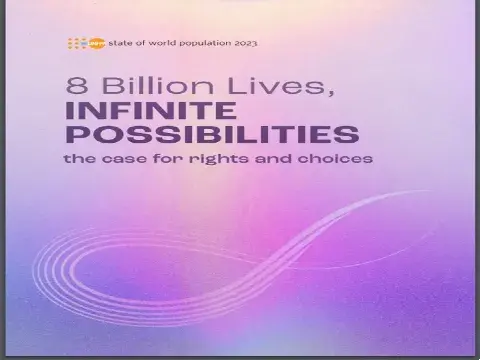UNITED NATIONS, New York, 22 May 2013-UNFPA, the United Nations Population Fund, will launch two new initiatives that will increase access to family planning and improve maternal health in some of the most-hard-to-reach areas around the world, including post-conflict and post-disaster countries. These initiatives build on UNFPA's more than 40 years of support to family planning and showcase its leadership in driving innovative approaches that empower those at the frontline to reach marginalized communities. They will be announced at the 2013 Women Deliver Conference, which will be held in Kuala Lumpur, Malaysia, from 28 to 30 May.
On 30 May, UNFPA will announce a new project with the International Planned Parenthood Federation (IPPF) that addresses the high unmet need for family planning among some of the world's most marginalized populations, particularly in post-conflict countries and those in transition. UNFPA and IPPF will use their unique expertise to galvanize political commitment to help meet the need for family planning in 13 countries with some of the lowest contraceptive prevalence, including Bolivia, Côte d'Ivoire, Ethiopia, Haiti, India, Myanmar, South Sudan and others. The initiative will boost advocacy and scale up voluntary family planning information and services in these countries, with an emphasis on young people and other vulnerable groups.
"To reach the 222 million women who are unable to access modern family planning, we need to think outside the box," says UNFPA Executive Director, Dr. Babatunde Osotimehin. "It is not enough to just distribute contraceptives; we must approach the situation holistically by creating an enabling environment that responds to the needs of women, men and young people and promotes innovative policies and programmes, including comprehensive sexuality education, and those that apply the latest technologies. We are excited about our project with IPPF which targets countries emerging from conflicts or natural disasters, where the need for sexual and reproductive health is the greatest."
More than 3,000 people will join Dr. Osotimehin, Crown Princess Mary of Denmark, philanthropist Melinda Gates, Chelsea Clinton, singer Mandy Moore and other global leaders at the Women Deliver Conference to promote investment in women and girls, share solutions for meeting the unmet need for contraception and discuss new post-2015 development goals on reproductive health.
In the days leading up to the conference, UNFPA will also co-host a symposium on strengthening midwifery. The event will bring together more than 230 midwives from around the world, in addition to policy makers and representatives of leading United Nations agencies, civil society and donor governments, which are expected to make political and financial commitments. UNFPA will lead discussions on the importance of investing in midwives and on ways to build up their skills to improve health, lower maternal deaths and disability and increase family planning, especially among young people.
At the symposium, UNFPA, along with partners Intel and Jhpiego, will announce new online training modules for frontline maternal health workers that address a critical knowledge gap in maternal health. The modules, which can be used remotely, instruct workers on how to treat dangerously high blood pressure, life-threatening post-birth bleeding and prolonged and obstructed labour. All of these are major contributors to maternal death and disabilities. Enhancing workers' skills in these three areas alone would help prevent roughly half of all maternal deaths in countries with high levels of such deaths.
In addition to the new partnerships with IPPF and Intel, UNFPA is supporting Women Deliver by leading several events that include:
- Ministers' Forum: UNFPA and Women Deliver will bring together ministers and senior officials from countries with the highest maternal deaths and lowest contraceptive prevalence to discuss challenges and solutions with experts from nations that have made progress in these areas.
- Parliamentarians' Forum: UNFPA and partners will convene with legislators from around the world to seek ways to speed up action on sexual and reproductive health, including maternal health and family planning.
- High-Level Panel on Family Planning: UNFPA will co-host a plenary session to highlight progress made since the 2012 London Summit on Family Planning.
"The Women Deliver Conference is important because it underscores the critical need to invest in women and ensure that they get the best sexual and reproductive health care, information and services they need to stay alive and healthy," says Dr. Osotimehin. "Giving women and girls access to family planning is not just about giving them choices; it is about enabling them to become more productive members of their societies. At UNFPA, we are committed to channel the energy and ideas that come out of this conference to ensure that every pregnancy is wanted and every childbirth is safe."




